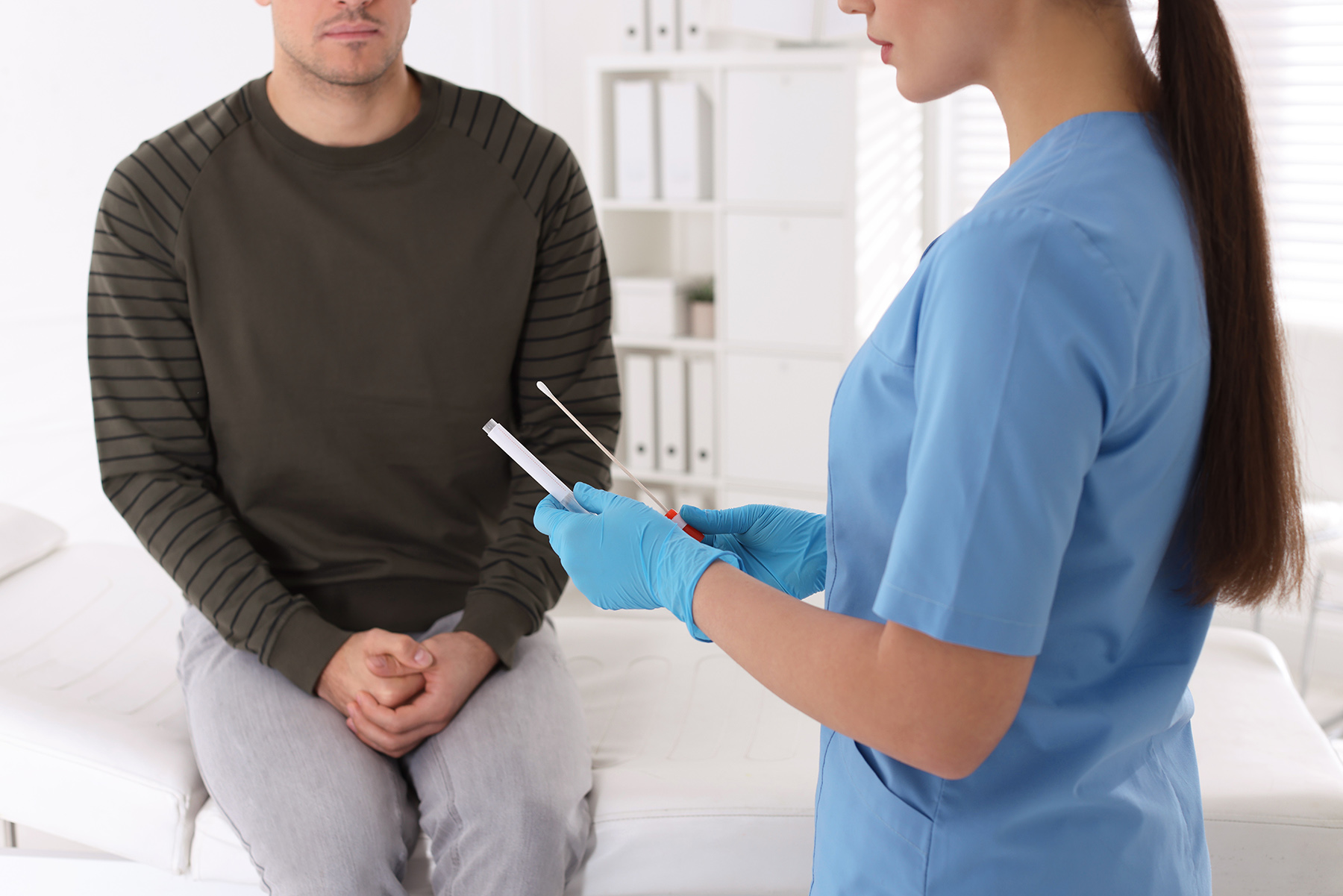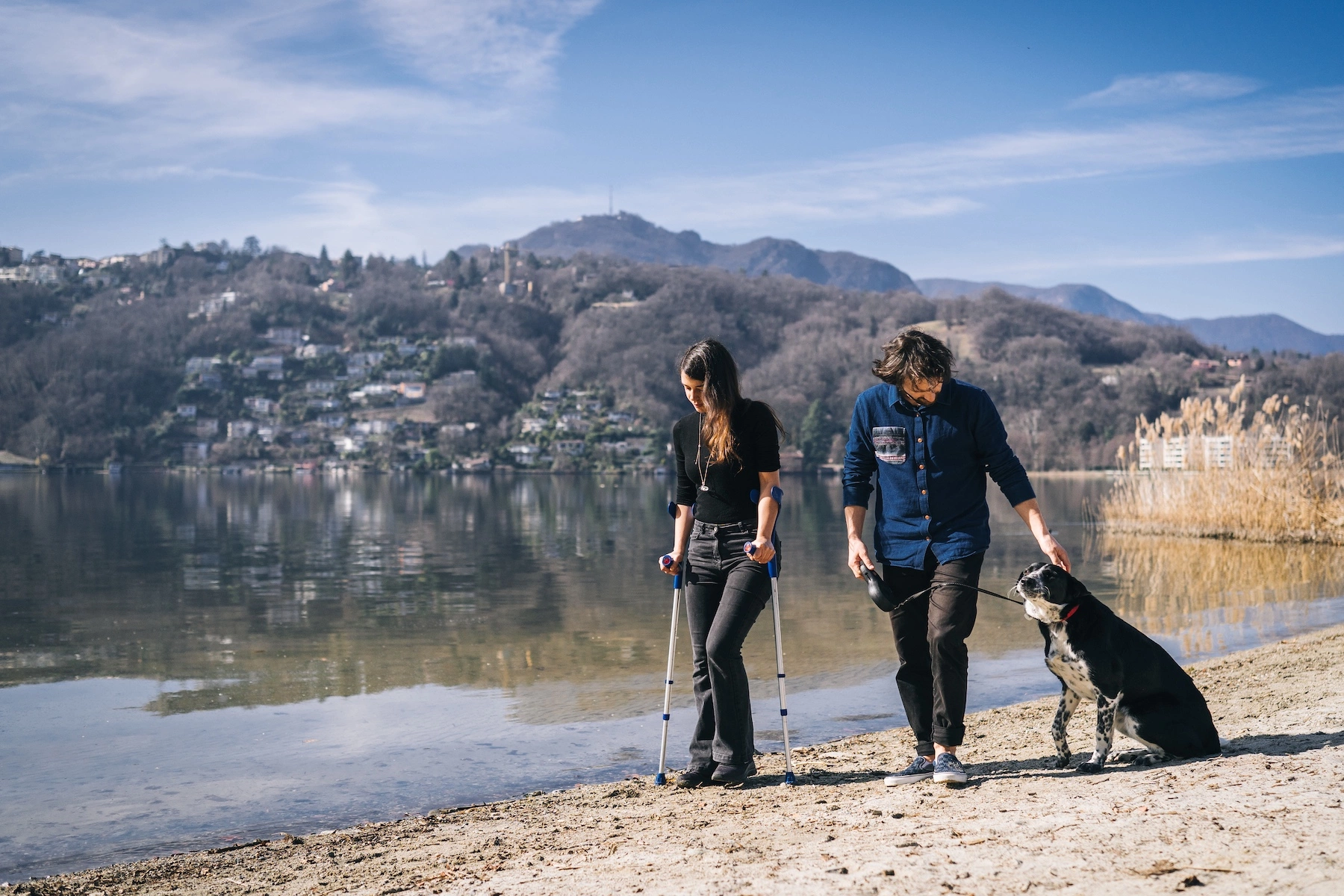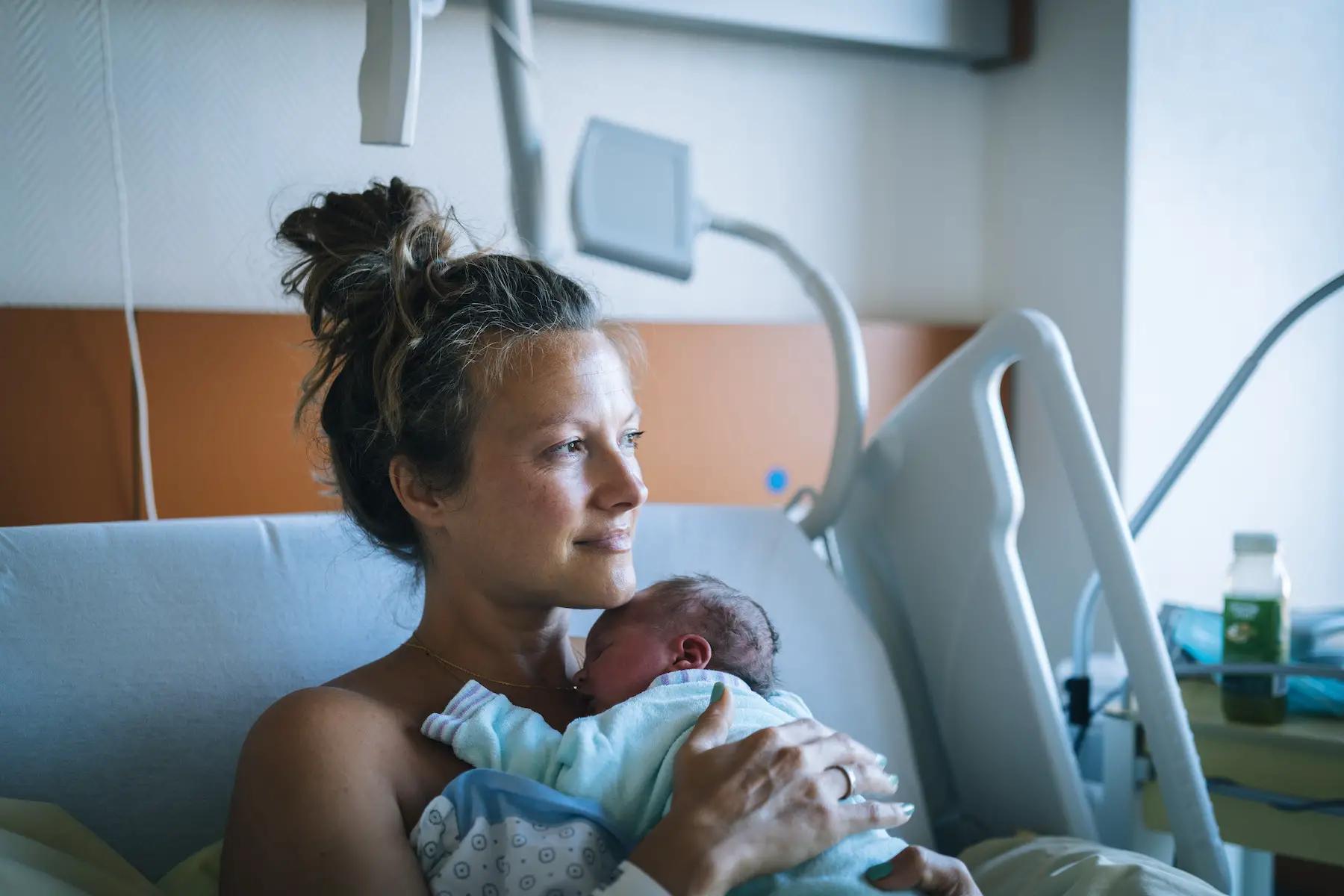There are many pros and cons to living in Switzerland. While taxes and everyday costs are generally expensive, the country offers many benefits for expats. A great education system, reasonably low rates of crime, good childcare options, and great cities to live in are just some of them. But most importantly, Switzerland has a robust healthcare system with well-trained professionals and state-of-the-art facilities. And this includes programs, services, and facilities for managing sexual health in Switzerland.
To help you navigate this area of Swiss healthcare, this article provides the following information:
- Attitudes towards sex and sexuality in Switzerland
- Accessing sexual health services
- Insurance for sexual and reproductive healthcare
- Contraception
- Pregnancy and childbirth
- Abortion in Switzerland
- STIs and STDs
- Feminine hygiene products
- Cancer screenings in Switzerland
- Services dealing with sexual problems in Switzerland
- Services dealing with sexual abuse and assault
- Young people’s sexual health in Switzerland
- LGBTQ+ sexual health in Switzerland
- Useful resources
Cigna Global
Enjoy peace of mind while living in Switzerland with Cigna Global’s long-term international health insurance plans (12+ months). Get tailored coverage, direct billing with many providers, complex case management, and global care on demand, with access to a network of 1.5+ million doctors, specialists, and therapists.
Attitudes towards sex and sexuality in Switzerland
Attitudes towards sex and sexual health in Switzerland are generally quite liberal. Because of this, the country takes a rather progressive approach towards issues such as sex education, contraception, abortion, and treatment for sexual health.

For instance, sex education is compulsory for children, there is easy access to a variety of contraception, and the HPV vaccination is recommended as part of adolescent vaccinations programs. Awareness surrounding safe sex is also high in the country. In fact, 93% of respondents in a Swiss study said they used contraception during their first intercourse, and 45% of youths claimed they had undergone HIV testing.
Accessing sexual health services
You can access a range of sexual health services in Switzerland, including counseling, testing, treatment, and education. However, in order to do so, you will need to show proof of basic health insurance. Essentially, everyone living in Switzerland must take out a health insurance policy within 90 days of moving to the country; although exemptions do apply. You will need to pay monthly health insurance premiums and pay part of the cost of your medical treatment yourself.
However, if you are visiting from the European Union (EU) or European Economic Area (EEA) for less than three months, you can use your European Health Insurance Card (EHIC) to access state Swiss healthcare at a reduced cost.
General practitioners are usually the first port of call for any sexual health concerns, but there are also family planning centers and sexual health clinics such as Santé Sexuelle Suisse. Furthermore, for urgent online consultations, services like Mobi Doctor provide English-language assistance.
Insurance for sexual and reproductive healthcare
Although Swiss law requires residents to contribute to basic health insurance schemes, many of these offer limited coverage for sexual health. For example, this will often cover things like gynecological screenings, pap smears, and HIV testing, but not testing for other sexually transmitted infections, contraception, or treatments for sexual dysfunctions.
Because of this, some expats choose to take out supplementary private health insurance to access a wider and better range of services and treatments. For instance, this might include things like hormone therapy or extensive testing and treatment for gynecological issues.
You can usually take out private health insurance with either the same provider of your basic package or a different one. Some of the main insurance companies that provide good supplementary expat health insurance in Switzerland include:
Naturally, the costs will be determined by your risk profile, the range of benefits you are choosing, and the canton that you live in. Typically, you will have to pay medical fees upfront and then claim reimbursements from the insurer by sending them copies of invoices and receipts.
Contraception
Thanks to liberal attitudes and widespread education on sexual health, Switzerland has high rates of contraception availability and use. In fact, 80% of sexually active Swiss residents between the ages of 15 and 49 use contraception, which is slightly above the global average. In addition, 25% of women in the same age bracket take the contraceptive pill.

Many types of contraceptives are available in Switzerland but while they are easy to access, most require a prescription. Condoms and contraceptive pills are the most popular forms of birth control in the country, however, IUDs and implants are also widely available. And, although it is far less popular, it is possible to get the morning-after pill, too. Of course, the price ranges for these different contraceptives. For example, condoms might cost between CHF 5 and CHF 20 a pack, while a month of contraceptive pills might cost CHF 30.
Pregnancy and childbirth
Many institutions that specialize in sexual health in Switzerland can also be useful resources for pregnancy and childbirth. Depending on your preference, you can access maternity health services at a hospital, in family planning clinics, in independent centers, or even at home with a midwife. Although most women choose to give birth in hospitals, home births are also possible.
Notably, as with many things in Switzerland, giving birth in the country is not cheap. For instance, on average, you can expect to pay US$7,751 for a normal birth and US$9.965 for a C-section. However, unlike in many other countries, Switzerland’s compulsory health insurance completely covers the cost of pregnancy and childbirth after the 12th week of pregnancy. This includes the birth and everything else you might need, from tests to ante-natal classes and lactation specialists.
Abortion in Switzerland
As part of its liberal attitudes towards sexual health, abortions have been legal in Switzerland since 2002. However, this is only up to the 12th week of pregnancy unless the woman’s physical or mental wellbeing is at risk.

If you want an abortion, you should contact your gynecologist, family planning center, or local hospital. You will need to complete a form issued by your canton asking for the termination, undergo counseling at a consultation center, and discuss other options such as giving the child up for adoption at birth. However, by law, you do not require compulsory counseling to have a therapeutic abortion, which is performed for medical reasons. Furthermore, Swiss law does not require parental consent for minors.
Notably, in some cantons, abortions are performed by gynecologists and general practitioners in private offices or clinics while in other cantons, they are usually performed in public hospitals or private clinics. If you go through the process properly, Switzerland’s health insurance policies will usually cover lawful terminations.
STIs and STDs
Despite having compulsory sexual health education, sexually transmitted infections and diseases are present in Switzerland. As in many other countries, the most prevalent STIs are chlamydia (affecting 3% to 10% of the sexually active population), gonorrhea (2,270 cases in 2016), and herpes (90% of the sexually active population are carriers).

You can get an STI test at many of the same places you can access other sexual health services in Switzerland. For example, at a hospital, family planning clinic, or sexual health clinic. You will usually speak to a nurse or doctor about your situation and then decide on the most appropriate testing regime. This is because there are different tests available, such as HIV or syphilis only, or a full-spectrum test that looks for HIV, syphilis, chlamydia, gonorrhea, and HIV. The costs of these tests will vary from CHF 45 to CHF 200.
The Swiss Government runs the National Programme for HIV and Other Sexually Transmitted Infections (NPHS), which promotes voluntary screenings, counseling, and other services.
HIV/AIDS in Switzerland
Switzerland does have cases of HIV and AIDs, but it also has a robust testing and counseling service. By the most recent estimates, there are 16,600 HIV-infected people living in the country. Testing for HIV is widely available throughout Switzerland at many institutions that offer sexual health services. HIV Combination Therapy, which uses a combination of HIV drugs to manage the condition, is also available in the country.
Feminine hygiene products
A wide range of feminine hygiene products is available in Switzerland, including sanitary pads, tampons, and, more recently, menstrual cups. As such, you can easily buy these at supermarkets, convenience stores, and pharmacies throughout the country.

Currently, these products are subject to a pink tax, which is Switzerland’s full 7.7% VAT rate. However, there have been ongoing discussions in recent years about lowering this to 2.5%.
Cancer screenings in Switzerland
As in many first-world countries, cancer is a fact of life in Switzerland. Two of the most common cancers in the country are breast cancer (there were 7,292 cases in 2020) and prostate cancer (6,705 cases in 2020). However, numerous other cancers are diagnosed each year, including lung, melanoma, leukemia, bladder, ovarian, and pancreatic.
Cervical cancer
There were 236 new cases of ovarian cancer in Switzerland in 2020. Because of this, Switzerland’s health insurance scheme includes a pap smear every three years for women between the ages of 16 and 69. However, basic insurance will not cover further tests and treatments beyond the pap smear, so it is best to have private insurance to cover this.
Breast cancer
Breast cancer is the most prevalent form of cancer in Switzerland, with over 7,000 cases being diagnosed each year. An annual gynecology check-up is available as part of Switzerland’s basic health insurance scheme and includes an annual breast exam or mammogram for women over the age of 50.

To arrange this, you can make an appointment with your gynecologist, but bear in mind that any additional tests and treatments require private insurance or out-of-pocket payments.
Ovarian cancer
Although 701 women were diagnosed with ovarian cancer in 2020, tests and treatments for the disease are not part of the basic insurance schemes in Switzerland. Therefore, your doctor may only recommend them if you show specific symptoms. That said, you can request the test if you feel you need it. Either way, you will have to pay for this yourself or use your private health insurance.
Prostate cancer
Prostate cancer is the most common form of male cancer in Switzerland, with nearly 7,000 cases being diagnosed in 2020. It is possible to get a prostate-specific antigen test (PSA), which checks your blood for a specific protein produced by the prostate. However, there is some debate about the usefulness of early cancer detection programs, so while some cantons do offer it, others do not. Again, it is best to talk to your GP about it if you are concerned.
Testicular cancer
A total of 439 men were diagnosed with testicular cancer in 2020. Because there are no routine tests for the disease, it is important to pay attention to any changes in the testes. If there are any concerns – such as swelling or lumps – it is best to go to your GP for an initial consultation. They can then refer you to a urologist if necessary.
Penile cancer
There were only 80 cases of penile cancer in Switzerland in 2020, making it the rarest form of cancer in the country. As such, there are no national screening programs or coverage for tests and treatments through the national health insurance scheme. Instead, you should speak to your GP immediately if you notice any symptoms such as growths or bleeding. They can refer you to a urologist for further testing and a biopsy.
Services dealing with sexual problems in Switzerland
There are many types of services for managing sexual problems in Switzerland. These include everything from counseling and therapy to medication, treatments, and testing.
Usually, sexual health clinics are the best place to begin looking for help to deal with sexual problems as they can offer advice and referrals. However, unfortunately, these types of services are not covered by health insurance so you will have to pay for them yourself. Below is a list of service providers that may be useful:
For information on mental health services, therapy, and counseling, read our dedicated article.
Services dealing with sexual abuse and assault
Switzerland has numerous programs and organizations to help those dealing with sexual abuse and assault. However, these will differ by canton and the particular services they offer. For example, there are some non-profits that will help with legal issues and provide shelter and counseling, as well as state services and private organizations.
Below are some important resources within the major cantons:
Basel
Bern
Geneva
- AVVEC
- CTAS (Centre Therapeutae Traumatismes Agressions Sexuelles)
- LAVI centre
- Rape Centre (Association Viol-Secours)
Zurich
Young people’s sexual health in Switzerland
As part of its liberal approach to sexual health, Switzerland offers a range of services and programs to support young people in the country.
Sex education
The Swiss government believes that factual sex education is the best way of ensuring good sexual health in Switzerland, especially among young people. As such, it mandates that all children are entitled to sex education to prevent STIs, teenage pregnancies, sexual violence, and foster healthy attitudes towards sex and sexuality.
While the federal government supports sex education and prescribes it in the school curriculum, the individual cantons are responsible for enforcing it in the local schools. Staff must train at the Universities for Applied Sciences and at specialized organizations to deliver fact-based sex education in an appropriate manner.
Youth sexual health
Due to the emphasis on sex education in Switzerland, the sexual health of youngsters in the country is generally quite good. In fact, a 2018 study of Swiss youths found that:
- 93% had used contraception during their first intercourse
- 40% of females and 8% of males had had the HPV vaccine
- 11% of females had been pregnant
- 45% had undergone HIV testing
- Nearly 10% had been diagnosed with an STI
LGBTQ+ sexual health in Switzerland
Because of its generally liberal attitudes towards sexuality, Switzerland is reasonably LGBTQ+ friendly. As such, it offers some sexual health support for those within the community.
Same-sex relationships in Switzerland
Although attitudes towards same-sex relationships and gay marriage can vary, most Swiss residents are supportive. This is especially true in major cities like Geneva, Zurich, and Basel. In fact, In December 2020, Switzerland legalized gay marriage.
Sexual health for the LGBT+ community in Switzerland
Although they can be difficult to find, there are some sexual health clinics in Switzerland that are designed to support the LGBTQ+ community. To find one, it is probably best to explore the resources on Santé Sexuelle.
Useful resources
- Santé Sexuelle – a non-profit organization that promotes sexual health and respect for sexual rights in Switzerland and beyond
- Federal Office of Public Health – a government website that provides information about all types of diseases and treatments in Switzerland
- Federal Office of Public Health – provides information about Switzerland’s National Program for HIV and Other Sexually Transmitted Infections (NPHS)








